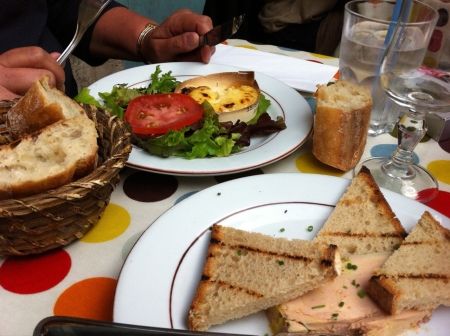Brothers and Sisters,
Can people celebrate X-mas when they do not believe in the birth of Christ? Is X-mas an exclusive feast or are there enough pagan elements, the tree, the presents and Father Christmas to make it something anyone can celebrate? When a Jewish friend asked me this question I answered the last.
The Christmas story starts with Joseph and Maria leaving for the town of David, Bethlehem.
Beth-lehem means literally beth=house of lehem=bread. Probably this has to do with the very fertile fields around the village. This little quite unimportant city will become the birthplace of the Messiah. The child that is born on Christmas night will change the lives of men and bring His people back to God.
The Messiah will bring peace to earth, but it will be another peace than expected. A feisty King of the Jews should be born in Jerusalem. This humble king will throw a new light on the world, give a new beginning.
In the house of bread, in de dark of the night a child is born and is wrapped in clothes. He was lying in a manger. In the traditional Dutch translation it is called a ‘kribbe’, except in the newest translation where it is translated with ‘voederbak’, troth. What do we make of a manger? Is it some kind of vessel to feed the animals or a stall? In the Greek dictionary the word phatne is defined as a ‘place to eat’. With this translation it is easier to find a link with the house of bread, Bethlehem. In those days bread was baked and wrapped in cloth and put in a clay pot to keep it fresh and undisturbed. Thus it may not be impossible to imagine baby Jesus being treated like fresh bread and put to rest in a manger.
In the gospel of John, Jesus declares, ‘I am the bread of life. Whoever comes to me will never go hungry, and whoever believes in me will never be thirsty.’ This is bread that can feed thousands and hundreds of people and give them not only a satisfied belly but also the more essential sense of a new beginning. People may always feed on Christ the living bread when they come together to celebrate! Might we all be nourished not only by natural bread (and a Christmas turkey) but also by every word that comes towards us from God! Yes by natural bread too, as is told of the early church: They devoted themselves to the apostles’ teaching and fellowship, to the breaking of bread and to prayer.
The story that starts in the city of Bethlehem with a child wrapped in cloth lying in a manger ends in Jerusalem where this same man breaks bread and his body with his disciples for the whole of mankind? X-mas goes on into Easter. Where the bread from the manger is broken and shared as a new covenant with God. It is already a token of the new light, of the glory coming from God. The light that shines in the darkness, and the darkness has not overcome it.
To resume, let’s think again of an answer to that question about celebrating X-mas. Is it offensive for the church when non-believers celebrate X-mas along with Christians? It is certain that all the people in our world need bread to eat, and light to live. So as Jesus was born in the bread house and laid in a breadbox, why shouldn’t we share this bread of life with people around us? Either they celebrate X-mas or Chanukah or the feast of the light or whatever… Jesus taught us to pray for our daily bread and to ask for peace every time we say a prayer. We can pray because in the night of X-mas hope was born among us. Hope for peace. Hope for new beginnings.
Amen.

